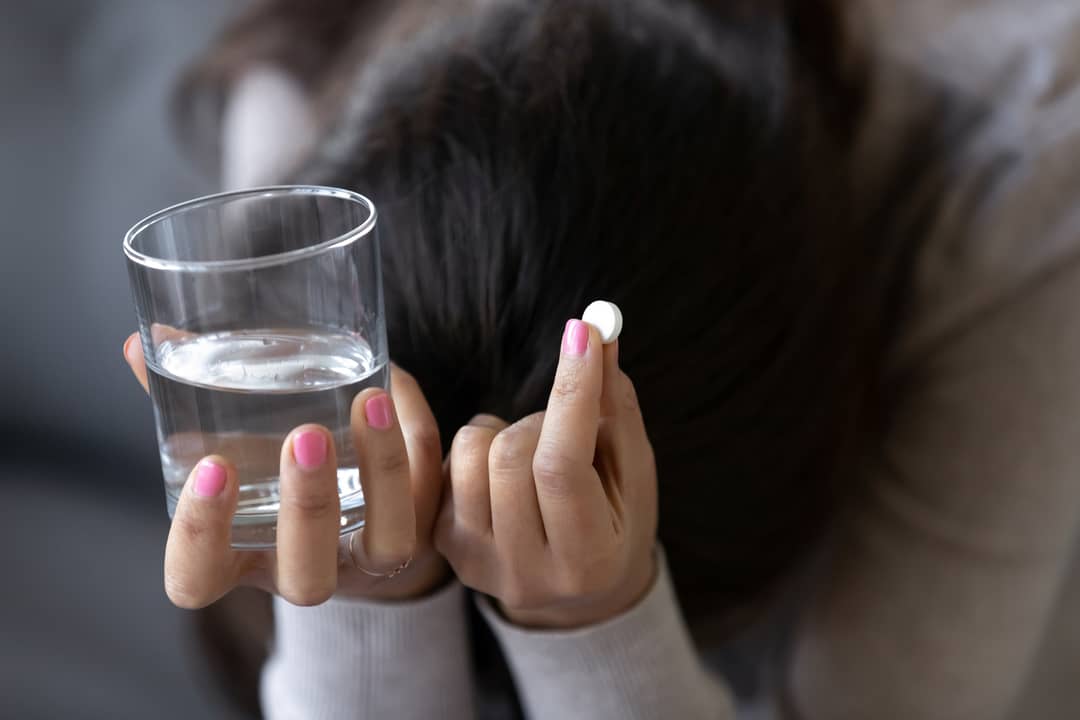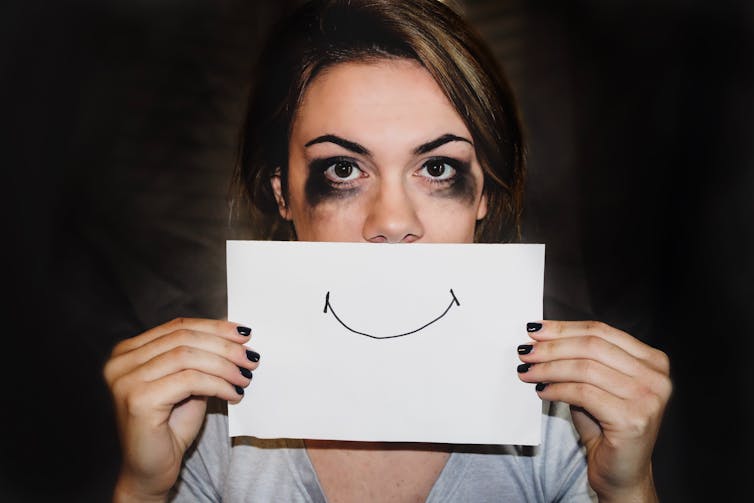
Since the 1960s, “the pill” has been a popular choice of contraception for many women around the world. On 1 February, 1961, Australia became the second country in the world to enable access to the pill, thereby allowing women to have control over their fertility and separate sexual activity from reproduction, a major revolution.
Today, the pill is the most popular choice of contraception for Australian women.
The early pills caused many physical side-effects such as nausea, vomiting and increased rates of blood clots – which were significant and concerning.
While newer generations of the pill have generally been improved in terms of physical side-effects and safety overall, a neglected area of consideration is the impact of the pill on mood.
The pill effects everyone differently. For me my anxiety and depression had heightened loads & I felt very suicidal. I’d love to go back on it (probs should) but it’s just not worth the mental toll it took on my body. Women should feel confident in their skin not a stranger to it.— Charlotte Hughes (@charlotteh_14) April 8, 2021
The hormones in the pill do affect the brain and mood
The relationship between the pill and mood is an important area to consider in view of the high prevalence of depression in Australian women, particularly those of reproductive age. Women are more likely to experience high or very high levels of psychological distress (19% of women compared with 12% of men), and reproductive-aged women (15-45 years) have high rates of depression.
We need to understand whether the pill could be to blame for some of this.
Laboratory neuroscience studies have shown oestrogen and progesterone, the “female hormones”, which most versions of the pill contain, greatly influence neurochemistry, brain function and the activity of neurotransmitters such as gamma-aminobutyric acid (GABA), serotonin and dopamine. This can cause depression, behaviour changes and disturbances in cognition.
Brain imaging studies have indicated oestrogen regulates the activation of brain regions implicated in emotional and cognitive processing such as the amygdala. Natural progesterone has been shown to have some anti-anxiety effects by acting on the GABA system.

Drawing conclusions from clinical trials on the pill and depression are hampered by the large number of different types of the pill and different hormones used, as well as the narrow definition of depression, that mainly refers to severe major depressive disorder.
Depression can manifest as a spectrum of mood disorders, including mild and moderate depression that still impairs the enjoyment of life.
However, convincing findings come from a large Danish study, with data from more than a million women. It concluded the use of hormonal contraception, especially among adolescents, was associated with depression requiring antidepressant treatment. This strongly suggests depression is a potential adverse effect of hormonal contraceptive use.
Can we talk about how the pill literally causes depression? and how little men know about this shit!— Maashie (@Maashie) September 1, 2021
Are any types worse than others?
Currently, the data suggests overall synthetic oestrogens appear to have a positive effect on depression, while the synthetic progesterones – called progestogens – have a varied effect, including worsening depression (depending on the type and dose of progestogen). Most pills contain both hormones – for example, in a commonly-used pill called Levlen.
Progestogen-only contraception, known as the “mini-pill”, seems to create a greater propensity for depressive disorders in vulnerable women. And users of the injectable progestogen contraceptive medroxyprogesterone acetate (brand name Depo-Provera) have more symptoms of depression than non-users.
Read more: Here's what's on the horizon for a male contraceptive pill – but don't hold your breath
It appears the addition of oestrogen in the hormone contraceptive improves mental health impacts, and the newer oral contraceptive pills containing the hormone estradiol (for example, Diane 35) or estradiol valerate (for example, Qlaira) may be less likely to cause mood changes.
The link between taking oral contraceptive pills and depression may be attributed to the amount and type of progestogen contained in oral contraceptive pills.
Our recent research showed a positive mental health response for some women taking a newer pill (called Zoely) containing a progestogen and a type of estradiol. This pill appeared to be better tolerated by women with a history of mood disorders.
Millions of women use hormone contraception without impact on their mental health. However, a significant number of women experience either first-time depression or exacerbation of existing depression when taking particular types of hormone contraception.
Read more: Informed consent: Women need to know about the link between the pill and depression
It’s therefore important for women to take note of their individual responses to hormone contraception and discuss this with their doctor, who should be able to discuss suitable options. It’s not clear whether doctors are advising women of the risks and asking them to keep an eye out for these symptoms when they prescribe the pill.
As a community, we all need to recognise and acknowledge hormones such as oestrogen, progesterone and their synthetic versions can have potent mental health effects.

Jayashri Kulkarni receives funding from NHMRC, Jansen, Servier pharmaceutical industries for clinical trials. This article received no funding, and there are no conflicts to declare in relation to it.
This article originally appeared on The Conversation.





